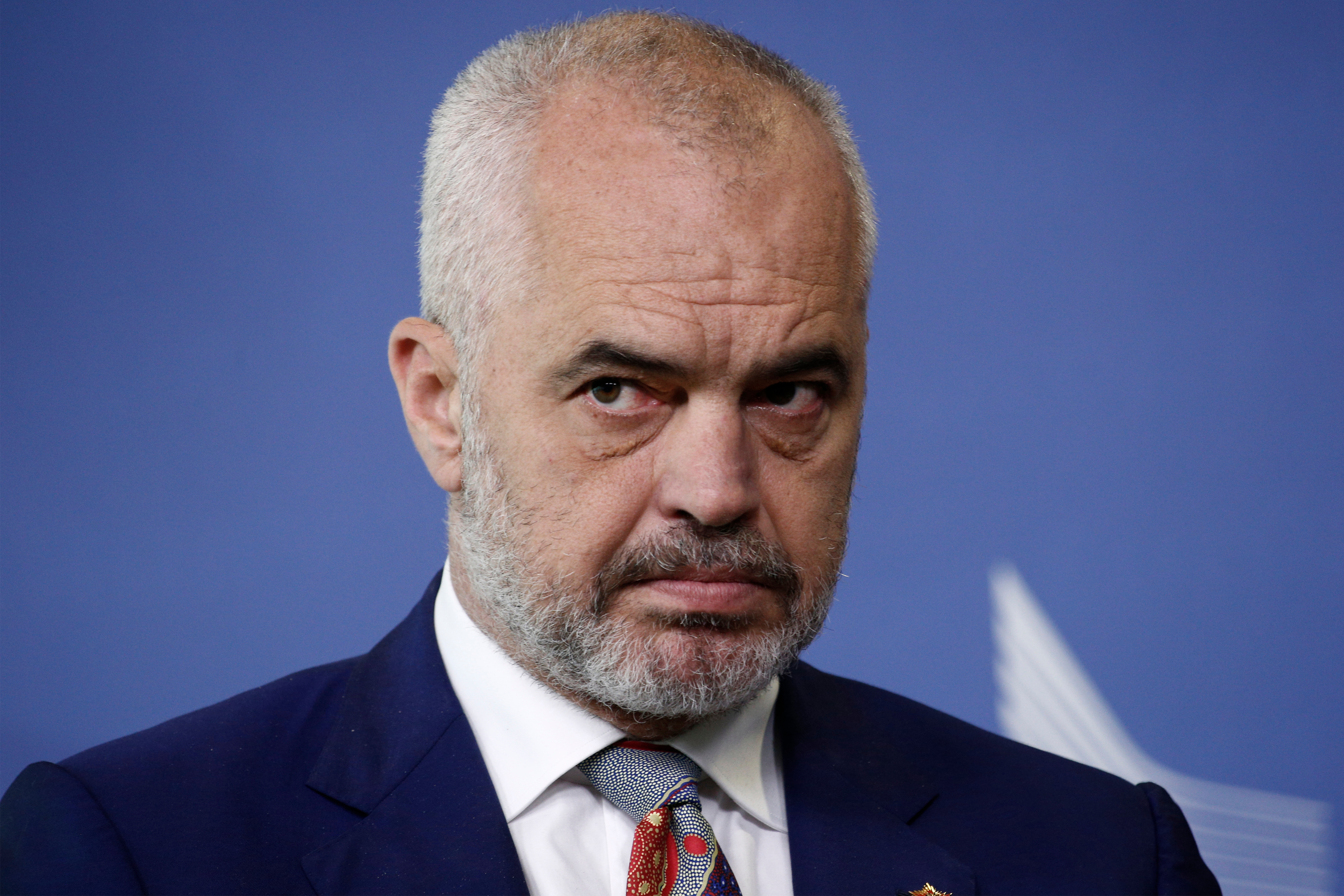

On May 11, Albania’s PM Edi Rama secured his fourth consecutive term in office. At the end of his term in 2029, Rama will be the second longest-serving executive leader in Albania after communist PM Mehmet Shehu (in office 1953-1981). The May 11 election was a landslide victory for the Socialist Party, which won around 50,000 more votes (4%) compared with the 2021 election. It now holds 83 of 140 seats and is just one vote short of the majority required for constitutional amendments.
Rama's crushing victory can be attributed to many factors: campaign style; a favorable electoral law combined with undemocratic practices such as the use of state resources; an uninspiring and aging opposition candidacy epitomized by Sali Berisha; a fragmented opposition front of new parties; and the failure by the EU and US to stand up for democratic standards.
The OSCE listed a wide range of undemocratic electoral practices by the ruling party, including the use of state resources, illicit fundraising, widespread intimidation of voters, unbalanced media coverage, and pressure on public administration employees – Rama’s “patronazhist” system (a form of cronyism) being particularly noteworthy. A number of media reports and reputable NGOs have expressed concerns about democratic backsliding in Albania, abuse of power, elite capture, state capture, money laundering, and a decrease in media freedom. However, one aspect remains unaddressed, namely the complete absence of criticism from the EU and the USA.
Relationship Conjuring
Since the start of Russia's full-scale war in Ukraine, both the EU and its influential members, as well as the US (starting with the Biden administration), have publicly and privately scaled back criticisms of undemocratic practices utilized by allies such as Albania. Most EU members view Rama as a worthy partner. The country has successfully organized three political events: the EU-WB Summit 2022, the Berlin Process Summit 2023, and the European Political Community Summit 2025. These have put Rama at the heart of some of the decisive European issues. Italy saw a benefit in signing an agreement on the establishment of migrant reception centers. Three British prime ministers – Johnson, Sunak, and Starmer – respectively, took the same approach, asking Rama for a similar pact.
In addition, Rama has managed to improve regional relations with Serbia, which many Western observers consider a breakthrough, even though Serbia maintained unresolved issues with Kosovo, but not with Albania. Part of Rama's international profile is his condemnation of the Russian war, his support for all EU sanctions against Russia, and the supply of weapons to Ukraine, in stark contrast to the path taken by Serbia or EU countries such as Hungary and Slovakia.
Rama has walked a fine tightrope by welcoming Israeli President Herzog during an official visit in 2024, a move that was likely not well received in Ankara (Turkey is the strategic partner of Tirana) but was greeted with approval in many Western capitals.
Rama has come up with a regional integration plan that backs regional initiatives like “Open Balkan,” “Mini-Schengen,” and an open dialogue with Serbia. While these sound promising for regional cooperation, nothing has really been achieved; instead, they have been used to mask corruption, nepotism, curbs on media freedom, and elements of state capture.
In addition, Rama has a good relationship with the Trump administration. Trump's son-in-law Jared Kushner received a 99-year lease at no charge for tourism investments in Sazani, a project worth millions.
While the judicial reform funded by the US and the EU in 2022 led to the arrest of a number of Rama's ministers, including Saimir Tahiri, the former Interior Minister who was convicted of abuse of power, Rama himself has rarely been criticized publicly for the involvement of his government’s members in corruption scandals or organized crime.
Everyone’s Friend (except Russia)
The EU sees Rama as a PM who is fully committed to Western interests in the region, provides stability in a troubled region, supports the EU in times of crisis, and, at least on paper, endorses Western liberal reforms. Since Rama came to power in 2013, more than 400,000 people have left the country, mainly in search of better economic opportunities. Media freedom has decreased, and corruption, nepotism, and clientelism are still present.
Albania has emerged under Rama as an important net exporter of stability in a highly chaotic region. Rama frequently and publicly criticizes his Kosovar Albanian counterpart, PM Kurti, for overstepping red lines—something Serbian President, Aleksandar Vučić is unwilling or unable to do with Serbian leader of Bosnia and Herzegovina (BiH), Milorad Dodik secessionist actions.
Similarly, Zagreb is also reluctant to criticize the Croats' unconstitutional actions in BiH. Although Albania has designated Turkey as a strategic partner, it has no objection to receiving the Israeli President with full honors, abstaining from the UN resolution on a humanitarian ceasefire in the Gaza war, and is even reported to be selling weapons. It has positioned itself as a frontrunner for the Ukrainian cause and is doing more than one would expect from a country of its size, whereas Belgrade is far from even publicly condemning the Russian war in Ukraine. Albania has managed to establish a constructive partnership with Serbia and Rama considers Vučić a close friend, while at the same time establishing a military partnership with Pristina and Zagreb.
While openly clashing with Kurti, Rama managed to invite Albanian party leaders from North Macedonia to Tirana to encourage them to pursue a constructive political agenda particularly with the Social Democratic League of ex-PM Zaev (another close friend of Rama’s). On a personal level, Rama is regarded not only as the PM of a partner country, but also as a good friend of Meloni, Macron, von der Leyen, Herzog, Zelensky, Vučić, and Erdogan.
All the actions in international relations have managed to bring Albania to the table with big players; however, dozens of reforms to build a rule-of-law and democratic society have either not been implemented or have been partially implemented, stalling the country further integration in the EU.